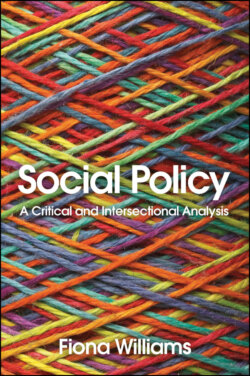Читать книгу Social Policy - Fiona Williams - Страница 20
Frame 1: Intersecting global crises ‘Crisis’ – a note
ОглавлениеCrisis carries several meanings. It can refer to an existing tension that threatens the status quo. Central to a Marxist understanding is that capitalism sows the seeds of its own destruction in that its profits depend upon intensifying exploitation of its labour force, leaving it vulnerable to their inability or refusal to be further exploited (Marx and Engels 1886). More commonly, crisis can refer to a short-lived acute predicament that leads to a turning point; or it may be an enduring chronic critical condition that awaits action. In this sense, Gramsci referred to a crisis being an interregnum when ‘the old is dying and the new cannot be born’, in which ‘a great variety of morbid symptoms appear’ (Gramsci 1971: 276). In other words, there is a recognition that the existing order does not work, yet there are not sufficient oppositional ideologies and forces (a counter-hegemony) to reconstruct it, and it gets worse. As important is the need to ensure that the claim to a global crisis needs to clarify for whom there is a crisis, and whether all regions of the world experience the crisis similarly.
These meanings and questions cover all four crises I discuss – of financial capitalism, of care and social reproduction, of environment, and of racialized transnational mobilities – in different ways. What they share is that they have emerged from an enduring tension inherent in their relationship with capitalism as an economic system of production and consumption into the specifics of a racial, extractivist and patriarchal neoliberalism. This has reached a critical point where, singly and together, they endanger future eco-social, human and non-human wellbeing and future sustainability. They are also areas of significant international mobilization and struggle which potentially challenge the hegemony of neoliberalism (discussed in chapter 7). For now, my main point is that it is in this conjuncture of intersecting crises that we better understand the shaping of national and supranational social policies.
Much of the relevant political literature on crisis refers to the contemporary crisis of democracy, seen especially in the distrust of political elites, the fatigue of and with social democracy, and the rise of ethno-nationalist populist leaders (Crouch 2011; Streeck 2014; Brown 2015). This is an important dimension, discussed in chapter 4 in relation to Brexit and in chapter 7 in relation to participatory democracy. But it is of a different order to, and more consequential of, the economic, social and planetary crises discussed here.
